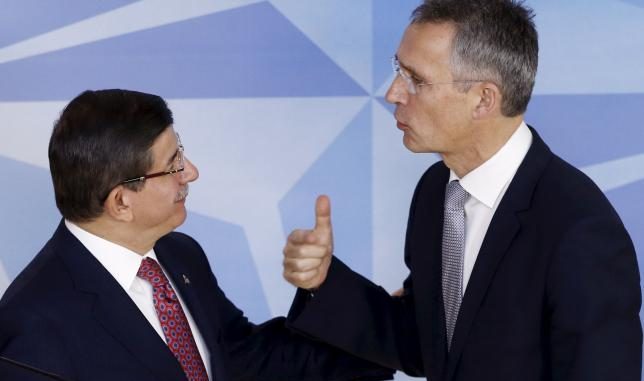
The council of the NATO military alliance approved a package of additional planes, ships, and surveillance equipment for Turkey on Friday.
Diplomats said the package is partly designed to avoid more shoot-downs of Russian planes after Ankara shot down a Russian fighter jet on the Syrian border in November.

BYPASS THE CENSORS
Sign up to get unfiltered news delivered straight to your inbox.
You can unsubscribe any time. By subscribing you agree to our Terms of Use
Latest Video
RT reports:
“We have agreed on a package of assurance measures for Turkey in view of the volatile situation in the region,” NATO General Secretary Jens Stoltenberg told Reuters. “This will give us a better situational awareness – more transparency, more predictability and that will contribute to stabilizing the situation in the region and also calm tensions.”
Although its contents have not been finalized, the booster is expected to include interceptor aircraft and Airborne Warning and Control System (AWACS) radar planes, which have a radius of over 400 kilometers. Additionally, Germany and Denmark will supply ships, which are already deployed in the Mediterranean.
The package, which was signed off on without discussion, has been mooted for 10 months, but became a pressing concern after Turkey shot down a Russian Su-24, which it claimed had violated its border.
The destruction of the jet, which was carrying out airstrikes as part of Russia’s anti-terrorism campaign in Syria, provoked a major fallout with Russia, which vehemently denied breaching Turkey’s borders. Moscow branded the air-to-air shootdown a “hostile act” and a “stab in the back.”
Publicly, NATO has supported Turkey, but officials have expressed dismay over the incident, which has damaged prospects for forming an anti-Islamic State (IS, formerly ISIS/ISIL) coalition comprising Russia, Western, and regional powers.
In the days before Friday’s council meeting in Brussels, NATO insiders widely briefed the media that the new forces would provide oversight of Turkey’s operations in the area and urge it to comply with the alliance’s more cautious rules of engagement.
“NATO will increasingly take over management of Turkish airspace, so the Turks will have to be mindful of the fact that we will have eyes in the sky that can give a second opinion on any situation,” a source told Reuters.


